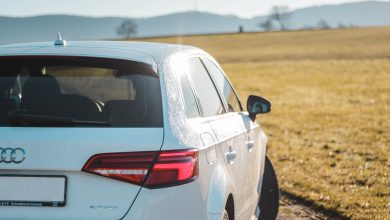Are Continental Cars Safer than Asian Cars?
People have different perceptions of different cars. In Singapore, if you drive a Honda Vezel, people might think you’re a private hire driver because Vezels are commonly used for Grab/GoJek. It’s the same for car brands and their origins.
Asian, specifically Japanese, cars are seen as reliable, while Continental cars are seen as high-quality machines. While these perceptions might be true before, they’re certainly not anymore.
These days, carmakers from across the world have upscaled their operations and better their standards. Some Toyota models can be better quality machines compared to some BMWs, and some Continental car brands can be more reliable than the Asian car brands.
But when it comes to safety, are Continental car brands still ahead of their Asian counterparts?
Who Says Continental Cars are Safer?
The perception that Continental brands build safe cars derives from a few things.
Europe has Higher Safety Standards
With the European New Car Assessment Programme (NCAP) is seen as the industry standard. It was established to test the safety performance of new cars and provides transparent information for car shoppers by giving each car a rating. The higher the rating, the safer it is deemed to be in the event of a crash.
The NCAP is also backed by 7 European governments, the European Commission and a number of motoring and consumer organisations in each country part of the EU. This further boosts its reputation as a trusted rating.
Continental Cars are Mostly Made in European Factories
Essentially, Continental cars are vehicles that are manufactured in Europe. These car brands have factories across Europe and are mostly build on the continent.
For many, this is perceived as desirable. Compared to the manufacturing plants in other countries like China, many people believe that the manufacturing standards in Europe are higher.
This might ring true in earlier years but not anymore. Proven by how some brands like Volvo have moved some of their operations to China. Additionally, many other international car brands receive car parts from factories in China.
It’s in the Price!
Another common thought as to why Continental cars are perceived to be safer is due to its price. As Japanese and Asian cars tend to be cheaper than Continental cars, it is said that these cars cut back on the quality of materials used. So, if an accident were to occur, it’s likely that Continental cars will be able to survive with lesser damage.
So do Continental Brands Make Safe Cars?
The perception that Continental cars are safer than Asian cars is skewed. It’s impossible for you to compare safety standards based on the origins of the brand or even its price.
For instance, an entry-level Audi is likely to have fewer features compared to a premium Audi model. So if you compare a BMW 7 Series with a Toyota Altis, the chances of the BMW having more safety features is higher. But even then, some entry-level models do have the same safety features as premium variants. Therefore, it’s impossible to judge it this way.
So, are Continental cars safer than in Japanese or Asian cars? While some continental models have more safety features, you can’t generalise all continental cars to be safer than its Asian counterparts.
In fact, when you check the crash test results and safety rankings from the Insurance Institute for Highway Safety (IIHS), 80% of the cars are from Japanese and Asian brands. While safety features vary from model to model, it’s safe to say that most modern cars are built with sufficient safety features and made with quality materials, making it almost impossible to come to a conclusion without getting skewed results.
People also liked: A COMPLETE GUIDE TO DISINFECT YOUR CAR 10 THINGS WE LOVE ABOUT CAR SUBSCRIPTION COVID-19 CIRCUIT BREAKER: IMPORTANT INFORMATION FOR CAR OWNERS




